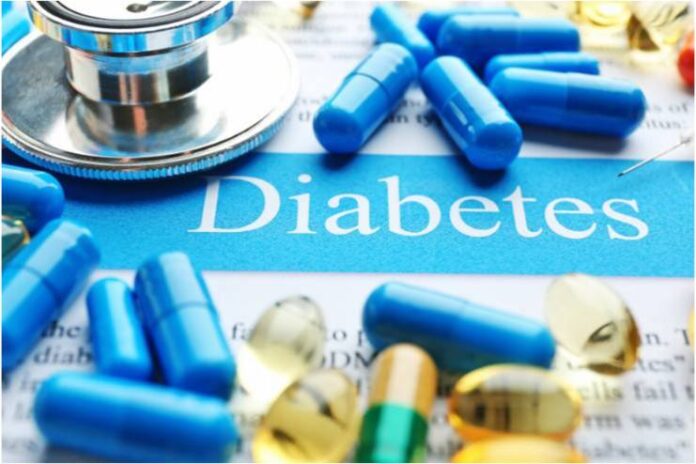Affiliate Disclaimer
Some links in this article are affiliate links. We may earn a small commission if you make a purchase through these links, at no extra cost to you. We only recommend products we find useful to our readersDiabetes is a chronic illness marked by elevated blood sugar levels brought on by the body’s improper synthesis or utilization of insulin. It is a major global health concern that, if left untreated, can result in serious complications such as renal impairment, nerve damage, and cardiovascular disease.
It is essential to understand diabetes to prevent and control it effectively. People can take control of their health by understanding the disease’s effects on the body and identifying its risk factors. To prevent diabetes and enhance the general quality of life, proactive management and lifestyle changes are crucial.
How Diabetes Affects the Body

Diabetes affects the production of the hormone insulin in the pancreas, which leads to problems in how the body regulates blood sugar. Insulin helps the body metabolize glucose by enabling cells to absorb and use glucose from the blood as fuel to energize our body’s cells.
Blood glucose levels are raised in diabetes because either the body produces insufficient insulin (Type 1) or cells develop a resistance to it (Type 2).
High blood glucose levels can harm blood vessels and neurons, disrupting normal body processes. Short-term effects include weariness, increased hunger, and frequent urination. Cardiovascular illness, renal damage, nerve damage, and visual issues are among the long-term consequences of diabetes.
To minimize symptoms and maintain overall health, individuals must appropriately manage diabetes with medication, dietary changes, and regular check-ups.
Also, Read: 16 Unusual Warning Signs Of Diabetes We Don’t Know Of
1Symptoms of Diabetes

When insulin is not functioning correctly, our body’s cells do not obtain the glucose and energy they require to function effectively. Patients with diabetes thus frequently encounter symptoms associated with low energy.
Diabetes has the following symptoms:
Frequent Urination: A patient with undiagnosed diabetes may experience increased urination, a condition known as polyuria. When glucose levels in the blood exceed the kidney’s ability to reabsorb it, glucose appears in the urine. The presence of glucose in the urine increases the osmotic pressure within the renal tubules, which pulls more water into the urine. As a result of osmotic diuresis, the kidneys produce more urine to get rid of the excess glucose. This increased urine production leads to frequent urination.
In essence, the kidneys are working harder to remove the surplus glucose, leading to increased urine output and more frequent trips to the bathroom.
Weight Loss: As the cells do not get enough glucose, their energy level decreases. This causes muscle tissue and fat to be broken down for energy, and the body starts losing weight.
The Smell of Acetone: You will discover that the breath of a diabetic person smells like a distinct “acetone” or like rotten fruits.
Intense Hunger: Glucose is pivotal in maintaining the body’s energy levels. If insulin is not working correctly, cells do not get the glucose they need to energize them, and instead, the glucose is excreted through urine. This results in the body not getting the energy it needs, and creates hunger signals.
Increased Fatigue: Glucose gives the body energy. In diabetic patients, insulin stops working correctly, so glucose does not enter the cells. The cells do not get the energy, making you feel tired and restless.
Inconsistent Thirst: Frequent urination causes the body to lose more water. To compensate, more water is needed to hydrate the body.
Other symptoms of diabetes include polydipsia, irritability, weight fluctuation, infections, slow wound healing, tingling or numbness in your hands or feet, dry and itchy skin, etc.
These symptoms should be noted and not ignored.
Also, Read: Enhancing Fitness With Walking For Diabetes: 9 Effective Tips!
2Diagnosis of Diabetes

Symptoms are the basic way a person may know that there is a problem with the body, indicating a need for testing. Different tests are available for diagnosing diabetes, including blood tests, urine tests, and sugar tests.
Blood Test: doctors check for Fasting Plasma Glucose (FPG). They check for the FPG level of blood after 8 hours of fasting.
HbA1C: Glycosylated hemoglobin test (HbA1C) checks the average blood glucose level for the last 2-3 months.
OGTT: In oral glucose tolerance testing (OGTT), doctors check the glucose concentration in the body.
Urine Test: doctors take a urine sample and check the ketone level.
3Risk Factors and Causes

Numerous genetic, lifestyle, and environmental factors combine to cause diabetes.
Genetic predisposition is an important factor since a family history of diabetes raises the chance of getting the disease.
Lifestyle factors are also important; low physical activity and unhealthy eating habits, such as consuming a lot of sugar and processed foods, significantly increase the risk of diabetes. Eating a balanced diet and exercising frequently can lower the risk of type 2 diabetes.
Insulin resistance is closely associated with disorders like obesity, which are examples of environmental variables. Predisposing conditions like high blood pressure or high cholesterol can also increase diabetes risk.
Managing and preventing diabetes effectively requires addressing these variables through lifestyle modifications and routine health check-ups.
4When to Seek Medical Help
Effective diabetes management depends on knowing when to seek medical attention. Extreme exhaustion, severe symptoms including blurred vision, unexplained weight loss, or persistently high blood sugar levels despite medication are warning signs that point to the need for expert attention. It’s critical to speak with a healthcare professional if you encounter any signs or symptoms.
Asking your primary care physician to recommend an endocrinologist or diabetes specialist is an excellent place to start. You might also look for nearby clinics specializing in diabetes treatment or certified diabetes instructors.
Routine check-ups are essential for monitoring the condition and modifying treatment as necessary. Frequent visits guarantee the efficacy of your care plan and enable the early detection of possible issues. Regular check-ups with medical specialists preserve good health and prevent significant problems.
Also, Read: Earlier Detection Of Type-1 Diabetes, New Study Suggests
5Preventing Diabetes

Making proactive adjustments and embracing a healthy lifestyle are crucial to preventing diabetes. You can considerably reduce your risk by prioritizing a balanced diet high in fruits, green leafy vegetables, whole grains, and lean meats. Avoid processed foods and sugar-filled beverages.
Frequent exercise, like brisk walking or cycling, enhances insulin sensitivity and aids in maintaining a healthy weight. It’s critical to manage weight and get regular exercise if you have a family history of diabetes or are overweight and at risk for the disease.
Getting enough sleep and implementing stress-reduction techniques should be a priority.
Regular screenings are essential for prevention and early detection—frequent examinations, such as blood sugar testing, aid in detecting possible problems before they worsen. Periodic screening enables improved overall health management and prompt intervention for those who are more vulnerable.
The key to lowering your risk of diabetes is regular monitoring and taking proactive steps.
6Conclusion
Effective diabetes treatment and prevention requires knowledge. Diabetes impairs insulin action and glucose metabolism, causing severe short and long-term health issues. We covered genetic predisposition, lifestyle decisions, and environmental variables that might cause diabetes.
It’s important to notice symptoms that require medical attention and get aid immediately. Managing diabetes and minimizing complications requires finding the proper physician and regular check-ups. Maintaining a nutritious diet, exercising regularly, and being informed can enhance your health and quality of life. Early detection and regular management are optimal for diabetes control and well-being.
References
- https://www.cdc.gov/diabetes/communication-resources/how-diabetes-can-affect-your-body.html
- https://www.betterhealth.vic.gov.au/health/conditionsandtreatments/diabetes-long-term-effects?ref=healthtips.kr
- https://www.healthline.com/health/diabetes/effects-on-body
- https://www.medicalnewstoday.com/articles/317483
- https://my.clevelandclinic.org/health/diseases/7104-diabetes
- https://www.webmd.com/diabetes/risks-complications-uncontrolled-diabetes
- https://www.cdc.gov/diabetes/risk-factors/index.html
- https://www.heart.org/en/health-topics/diabetes/understand-your-risk-for-diabetes
- https://www.mayoclinic.org/diseases-conditions/diabetes/symptoms-causes/syc-20371444
- https://www.medicalnewstoday.com/articles/317436
- https://www.emergencyphysicians.org/article/know-when-to-go/diabetes
- https://healthcare.utah.edu/diabetes/when-should-you-see-diabetes-specialist
-
Nov 2015Written by Shaveta Kandhari
-
Sep 2024Edited by Ankita
In this Article





























